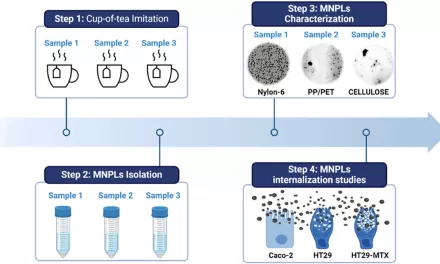Recent research indicates that significantly reducing sugar and starch in the diet can provide substantial relief for individuals suffering from Irritable Bowel Syndrome (IBS), potentially offering a simpler alternative to the traditional Low FODMAP diet. The study, led by Professor Bodil Ohlsson at Lund University and Skåne University Hospital, involved 155 IBS patients and explored the effectiveness of a sucrose-reduced diet (SSRD) compared to the Low FODMAP diet.
Background and Motivation for the Study
The impetus for this research stemmed from a geneticist’s discovery that a genetic variation that impairs sugar and starch digestion is prevalent among IBS patients. Professor Ohlsson remarked, “Let’s try giving these patients less sugar and starch,” leading to the initiation of a diet that reduces both sucrose and starch intake.
In a previous study, Ohlsson found that participants following the SSRD experienced significant symptom relief over four weeks. Symptoms of IBS, which commonly include abdominal pain, bloating, and irregular bowel movements, were notably improved.
Study Findings: SSRD vs. Low FODMAP
The newly published study in the journal Nutrients compared the SSRD with the Low FODMAP diet, which requires strict adherence to a list of allowed and prohibited foods, including gluten and lactose. “We launched this study in 2022 to compare SSRD and Low FODMAP,” Ohlsson explained. Participants in both diets reported improvement, with 75-80% experiencing reduced symptoms, exceeding expectations.
Notably, the SSRD group not only lost more weight but also reported a greater decrease in sugar cravings compared to their counterparts on the Low FODMAP diet. Ohlsson highlighted the appeal of the SSRD: “We wouldn’t really even call SSRD a diet. It’s how everyone should eat, not just those with IBS.”
Practical Implications for IBS Management
One of the significant advantages of the SSRD is its accessibility and ease of understanding. Unlike the more complex Low FODMAP diet, the SSRD allows for a wider variety of food choices and flexibility in social situations. Ohlsson emphasized, “If you rest your stomach for the rest of the week, you can indulge a little one day!” This practical approach may encourage better adherence among patients, ultimately improving their quality of life.
As IBS continues to affect millions worldwide, these findings underscore the importance of accessible dietary strategies in managing symptoms effectively. With the SSRD showing promise as a feasible option, patients may soon have a new tool in their arsenal to combat this challenging condition.
For more information, refer to the original study: “A Starch- and Sucrose-Reduced Diet Has Similar Efficiency as Low FODMAP in IBS—A Randomized Non-Inferiority Study” by Bodil Roth et al., published on September 8, 2024, in Nutrients. DOI: 10.3390/nu16173039.












